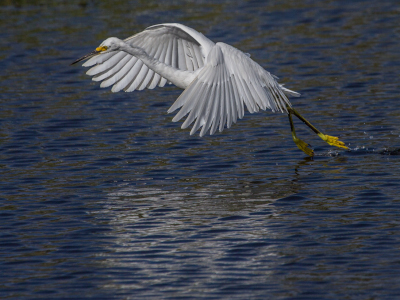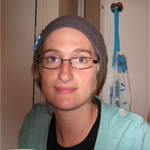Life after my Fellowship
Posted on 19 December 2018
Life after my Fellowship
 Image by Andy Morffew.
Image by Andy Morffew.By Robyn Grant, Senior Lecturer in Comparative Physiology & Behaviour, Manchester Metropolitan University.
I was inspired to apply for the Software Sustainability Institute Fellowship Programme in 2014 when I saw that it was not just for software developers, but software users too. I am a biologist, working on animal sensing and movement, and have spent quite a lot of my time working with programmers to develop software that can track my high-speed videos of animals moving in complex ways. My experience was that each developer would make me a custom program, that may or may not be functional, and certainly was not applicable to another set-up or animal species. I was really struggling to use the trackers, and assist in the development process too, and I was really up for a change! It was great to hear about the ethos of the Institute – to make code open, flexible, free and sustainable – it sounded just perfect to me and would make my trackers so much better!
I chatted about my experiences in my interview, and presented the challenging videos that I collect for tracking, and got my Fellowship in 2014. I went to a couple of conferences as part of the fellowship and talked about the importance of software sustainability for the neuroscience and animal behaviour research communities. I also attended a lot of the Institute's events; the Collaborations Workshops were especially useful, with lots of discussion sessions. I was made to feel really welcomed, despite not being a developer, and everyone explained everything very clearly to me.
After my Fellowship, I felt inspired that I could move forward with my custom behaviour trackers. I was awarded a PhD student at Manchester Metropolitan University in collaboration with Dr Moi Hoon Yap in Computer Science. The project was to make a custom animal tracker, and inspired by the Institute, I made sure that it was open, modular and free so that everyone can access it. Our PhD student, Brett Hewitt, has just finished his PhD, and published three bits of software during his studies, including one in the Journal of Open Research Software (JORS). We have received some great feedback about our programs so far, and it has been fantastic to feed in as a user, while also having enough knowledge to ensure that the software is structured properly too. I have refused offers to commercialise the software, as I am a firm believer in open science, and making things accessible.
My Fellowship has given me confidence to discuss and work in software development. However, the support does not stop there. When you receive a Fellowship, you become a lifelong Fellow of the Institute, with all the associated support. I help shortlist the Fellow applications every year, and I continue to make use of the Fellow support network and mailing lists. I send and receive adverts for studentships and postdocs that we have in research software development, I continue to write blog posts for the Institute, receive news, and also chat about the Institute at many conferences and meetings. In fact, I ran the International Measuring Behavior Conference in Manchester this summer and approached the Institute to run a workshop there. Their workshop was very well attended and received excellent feedback. It feels nice to still have the support of the Institute.
Overall, I totally recommend the Software Sustainability Institute Fellowship Programme route. It is a super interesting time, and you get to meet all sorts of varied and interesting people that continue to support you long after your Fellowship year. Good luck with your applications!!!
Questions about the Programme should be directed to fellows-management@software.ac.uk.

